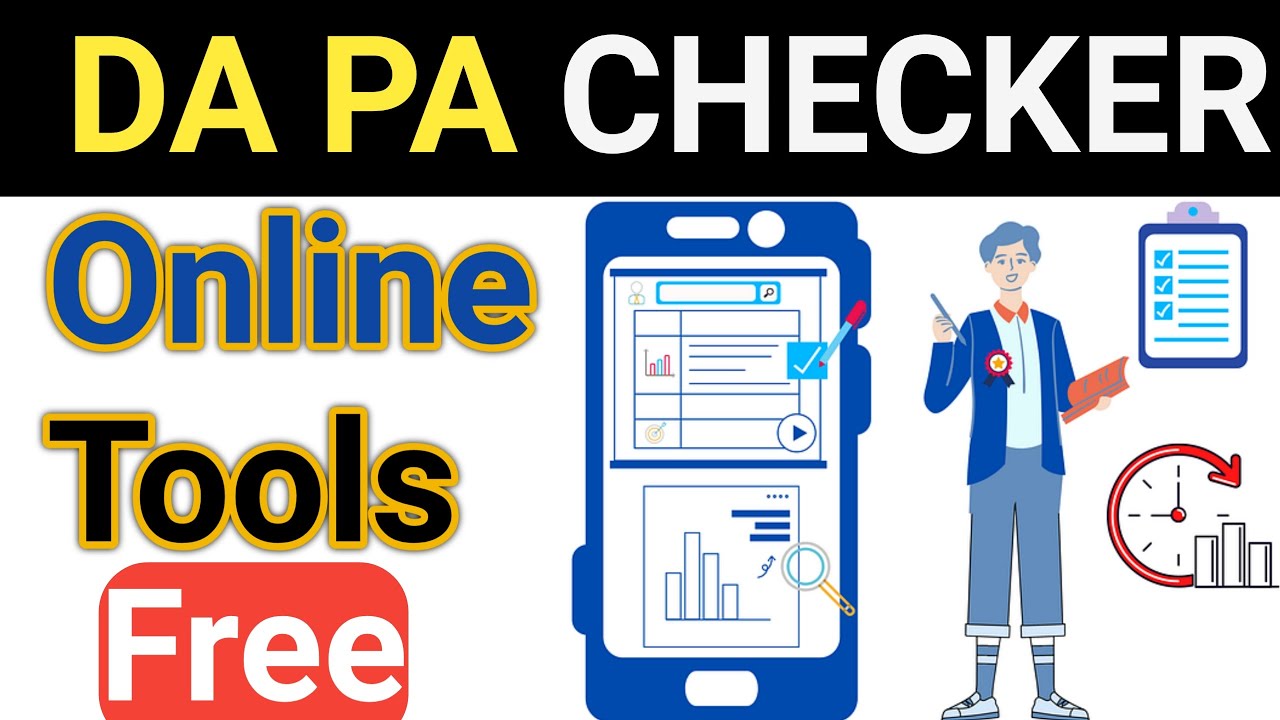
Online Business Tools: Supercharge Your Success as a Digital Entrepreneur
Elevate your online business with our expert-curated list of essential tools. Streamline operations, boost productivity, and achieve success

As a blogger with a decade in the trenches, I've learned a thing or two about building a successful online business. One of the most important lessons has been the power of the right tools. In today's fast-paced digital world, the vast array of online business tools available can be both a blessing and a curse – it's easy to get overwhelmed.
That's why I'm sharing my tried-and-tested toolkit. These tools have streamlined my workflow, improved productivity, and enhanced my success as a blogger and online entrepreneur. Whether you run a side hustle or a full-fledged business, this curated selection will supercharge your journey.
Harnessing the Transformative Power of Online Business Tools
The digital revolution has equipped businesses with a vast arsenal of online tools capable of revolutionizing operations, boosting efficiency, and driving sustainable growth. These tools span a spectrum of essential business functions and offer solutions tailored to businesses of all sizes and industries.
Key Reasons Online Business Tools Are Crucial
Let's dive into why online business tools are essential for the modern business landscape:
1. Increased Efficiency and Productivity
- Automation of Repetitive Tasks: Many online business tools automate time-consuming, mundane tasks like data entry, scheduling, email follow-ups, and social media posting. This frees your team to focus on strategic work and decision-making.
- Streamlined workflows: Tools for project management, task tracking, and collaboration create structured workflows. Teams can work more seamlessly together, reducing errors and bottlenecks.
- Centralized data: Tools integrate data from sales, marketing, and customer support into a unified platform. This eliminates the need to switch platforms and provides a comprehensive view of your business.
2. Improved Collaboration and Communication
- Real-time Collaboration: Cloud-based document sharing, project management platforms, and video conferencing tools enable real-time collaboration regardless of location. Teams can work on projects simultaneously, leading to faster iterations and decision-making.
- Effective Communication: Instant messaging tools, shared calendars, and online discussion boards keep communication flowing smoothly within teams and departments.
- Remote work facilitation: Online business tools are the backbone of distributed teams. They provide a virtual workspace to share information, collaborate, and track progress as effectively as an in-office environment.
3. Enhanced Customer Experience
- Customer Relationship Management (CRM): CRM systems provide a centralized database of customer interactions, history, and preferences. This empowers businesses to deliver personalized service, targeted marketing campaigns, and proactive support, improving client satisfaction.
- Omnichannel Communication: Tools that integrate email, social media, live chat, and phone support let businesses engage with customers on their preferred channels and provide a consistent, seamless experience.
- Customer insights: Analytics tools help businesses track customer behaviour, preferences, and feedback. These insights can fuel business decisions regarding product development, marketing strategies, and service improvements.
4. Scalability and Flexibility
- Adapting to Growth: Many online business tools offer subscription-based models with scalable plans. As your business grows, you can easily upgrade to accommodate more users, features, or storage without significant infrastructure investments.
- Work From Anywhere: Accessing business data and applications from the cloud allows flexibility for employees to work from home while traveling or across multiple office locations.
- Agility: Online tools let businesses adapt quickly to changing market conditions or customer needs. Teams can test new workflows, pivot strategies, and roll out updates with relative ease compared to traditional software models.
5. Cost-Effectiveness
- Elimination of Hardware Investments: Cloud-based tools minimize the need for expensive on-premise servers and IT maintenance, reducing upfront costs and ongoing expenses.
- Pay-As-You-Go Models: Subscription-based pricing lets businesses access the necessary tools without hefty licensing fees. This is particularly beneficial for small businesses with limited budgets.
- Reduced Operational Costs: By automating tasks, improving communication, and streamlining workflow, businesses can reduce labour costs and operational overheads.
Examples of Key Online Business Tools
- Project Management: Asana, Trello, Basecamp
- Communication and Collaboration: Slack, Google Workspace, Zoom
- Customer Relationship Management (CRM): Salesforce, HubSpot, Zoho CRM
- Marketing and Sales Automation: Mailchimp, ActiveCampaign, Pardot
- Website Building and Ecommerce: WordPress, Shopify, Wix
- Analytics: Google Analytics, Kissmetrics, Mixpanel
Essential Online Business Tools: A Veteran Blogger's Picks
Let's dive into the toolkit and remember it's about quality, not quantity.
1. Project Management & Collaboration
- Asana: Flexible project management for teams or solopreneurs. Keep tasks, deadlines, and communication organized.
- Trello: Visual, card-based system great for visualizing workflows and content pipelines.
- Slack: Real-time messaging and collaboration hub. Reduces email overload and is perfect for both remote and in-house teams.
2. Content Creation & Design
- Canva: Easy and intuitive design for everything from social media graphics to presentations or ebooks. A lifesaver if you're not a professional designer.
- Grammarly: Essential for catching grammar errors, improving writing clarity, and avoiding embarrassing typos.
- Hemingway Editor: Helps refine your writing style, promoting concise and impactful communication.
3. Email Marketing
- ConvertKit: Powerful for building targeted email campaigns, automation, and growing your subscriber base.
- Mailchimp: This popular option offers a free entry-level plan. Best for more straightforward email marketing strategies.
- ActiveCampaign: Advanced email marketing and automation features for sophisticated sales funnels and customer journeys.
4. Website Building & Analytics
- WordPress: The most flexible content management system (CMS), powering most websites and blogs.
- Google Analytics: Essential (and free) analytics to understand traffic, user behaviour, and how to optimize your website's performance.
- Google Search Console: Provides data on your search rankings and any technical issues impacting visibility directly from Google.
5. Social Media Management
- Hootsuite: Schedule posts on various platforms, monitor mentions, and track social media analytics, all in one place.
- Buffer: Another efficient scheduler for streamlined social media management with additional analytics capabilities.
- Sprout Social: Robust tool with powerful analytics and social listening tools, perfect for businesses needing deep social media insights.
Best Online Business Tools

Key Categories & Considerations
-
Beyond the Essentials: While the previously mentioned categories remain critical, it's valuable to consider specialized areas that may significantly boost your operations. Here's where you can delve deeper:
-
Customer Support & Ticketing: Zendesk and Freshdesk streamline customer inquiries, offering knowledge base integration and robust self-service portals to enhance the customer experience.
-
Document Management & E-Signatures: DocuSign and PandaDoc revolutionize contract management, enabling secure electronic signatures for legally binding agreements.
-
Analytics & Reporting: Go beyond Google Analytics with tools like Mixpanel or Amplitude for sophisticated behavioural analysis. Understanding user journeys within your digital products leads to data-driven optimizations and a clear view of your ROI.
-
SEO & Keyword Research: Ahrefs and SEMrush provide deep insights into competitor strategies, search volume analysis, and backlinking opportunities to bolster your search engine visibility.
Niche-Specific Solutions
-
Freelancers & Remote Teams: Upwork and Fiverr offer platforms to connect with talented freelancers across various specializations, expanding your team's capabilities on a project-by-project basis.
-
Design Collaboration: Figma facilitates real-time collaboration on design projects, fostering a streamlined workflow for web designers, UI/UX specialists, and marketing teams.
-
Video Editing: While basic editing can be achieved with tools like iMovie, consider Adobe Premiere Pro or Final Cut Pro for professional-grade video production that elevates your marketing content.
-
E-learning & Course Creation: Thinkific and Teachable empower you to develop and monetize online courses, sharing your expertise and creating an additional revenue stream for your business.
The Ever-Evolving Landscape
-
Staying Ahead of the Curve: Online business tools are perpetually changing. Committing to continuous research and updating on emerging solutions can provide a competitive edge.
-
AI-Powered Tools: The integration of artificial intelligence (AI) is rapidly transforming the business landscape. Explore AI-powered copywriting assistants, automated social media content creation, and image-generation tools to increase efficiency.
Additional Tips
-
Integration Powerhouses: Zapier and IFTTT automate workflows between disparate tools, maximizing efficiency. A simple 'Zap' can link lead forms to your CRM, social media notifications to your communication hub, and countless other combinations.
-
User Reviews and Communities: G2, Capterra, and similar platforms provide extensive user reviews, offering valuable insights into a tool's strengths and potential shortcomings before you invest in it.
-
Don't Overwhelm Yourself: While it's tempting to implement a myriad of tools, focus on critical functionality first. A gradual, strategic approach to tool adoption ensures optimal utilization and a better return on your investment.
Choosing the Right Online Business Tools
- Needs: What tasks take the most time or cause bottlenecks? Prioritize tools that solve them.
- Budget: Options across price points, from free to enterprise level.
- Integrations: Choose tools that integrate with your existing workflow seamlessly
- Features vs. Simplicity: Don't be overwhelmed by features; sometimes, simple tools are best.
Tips From a Veteran: Getting the Most Out of Your Tools
- Start gradually: Implement a few tools at a time to avoid being overwhelmed.
- Training & Support: Ensure you and your team know how to fully utilize the tools.
- Regular evaluation: Are your tools still serving you? Adjust your tech stack as your business evolves.
Conclusion
Online business tools are your secret weapon for thriving in the digital marketplace. With these tools, you'll be ready to supercharge your productivity and achieve your business goals.

IMOH JAPHET
CEO / Editor
Imoh Japhet is a multi-talented Tech-Pro with passion for web development, Mentoring, Customer Satisfaction, and Content Creation. His decade of experience led to Tool4SEO.com; a free online Toolkit built to help you simplify web development, daily tasks and content creation.







